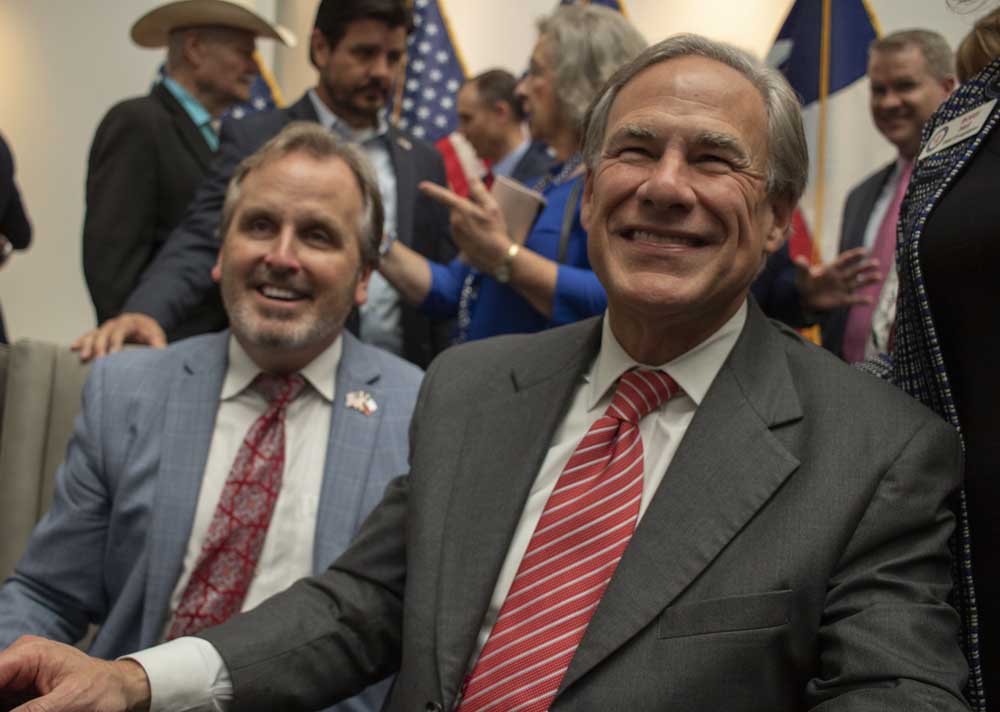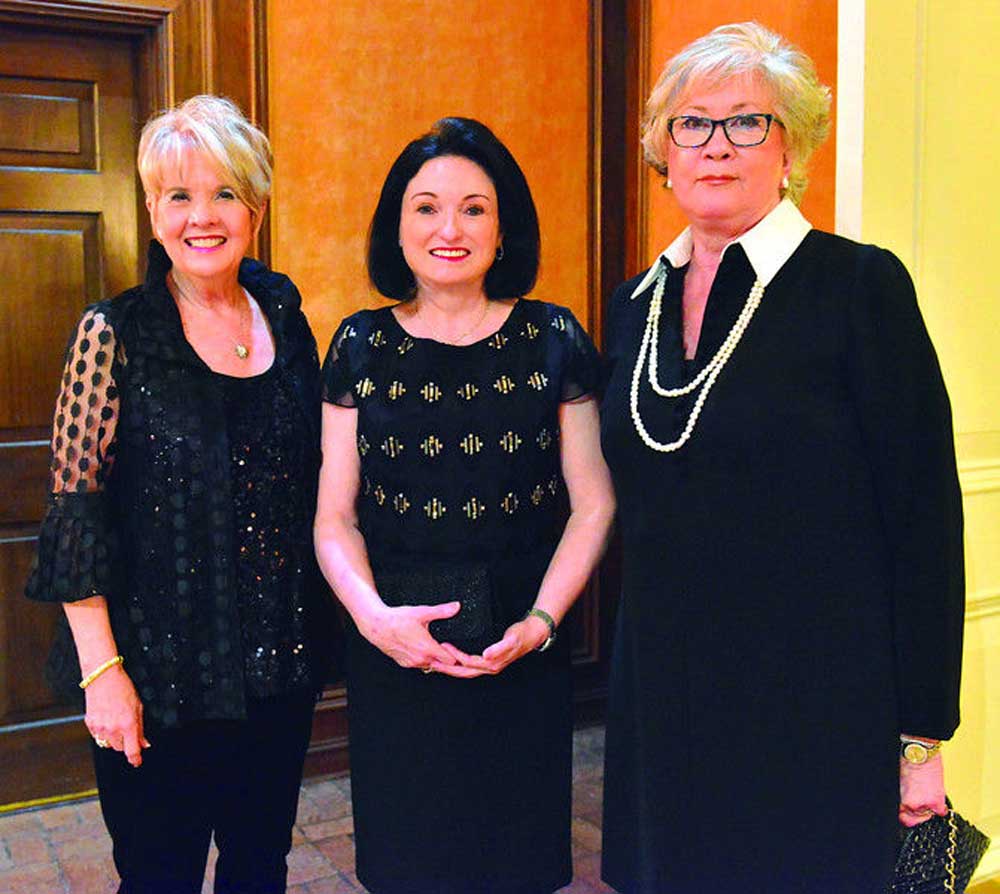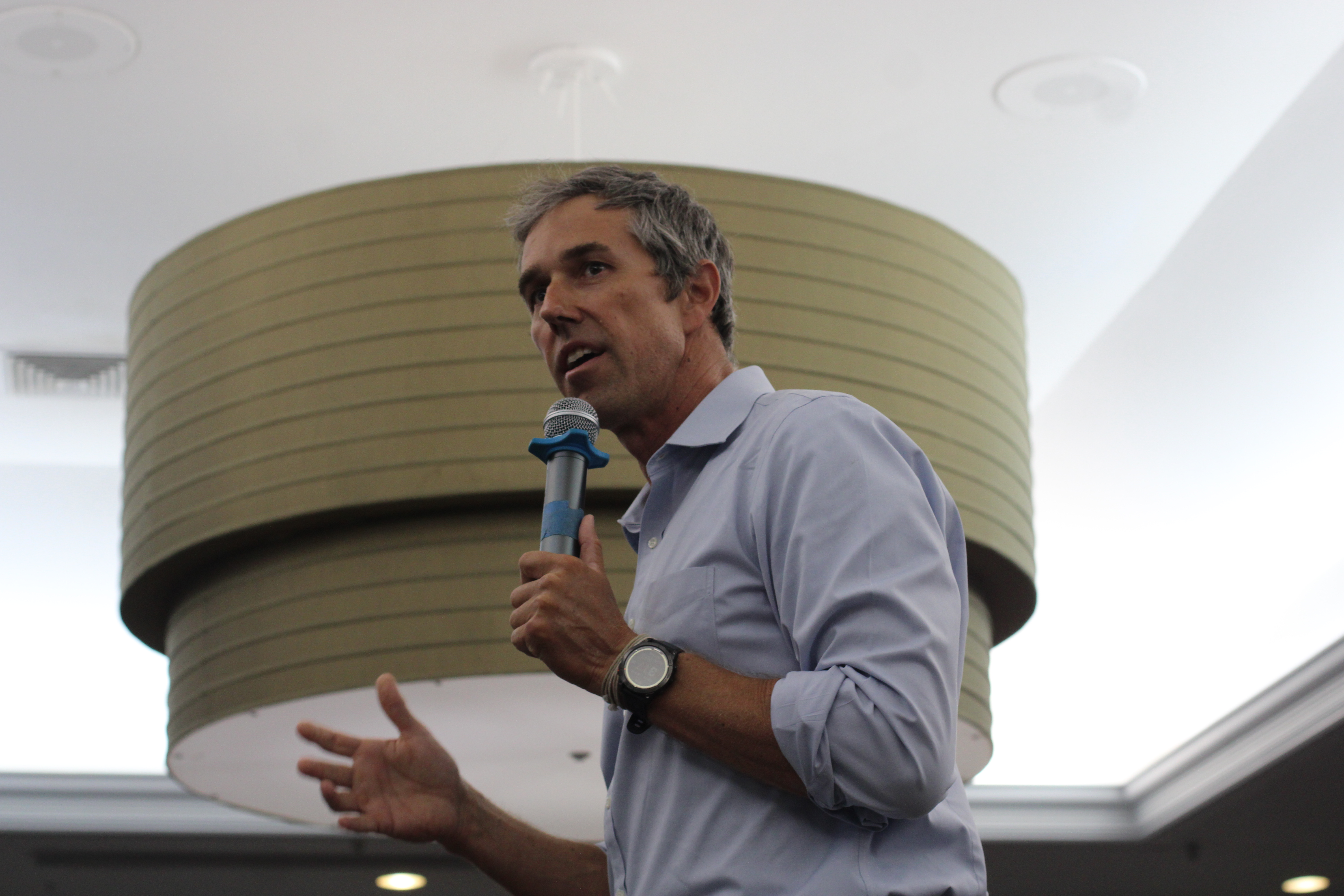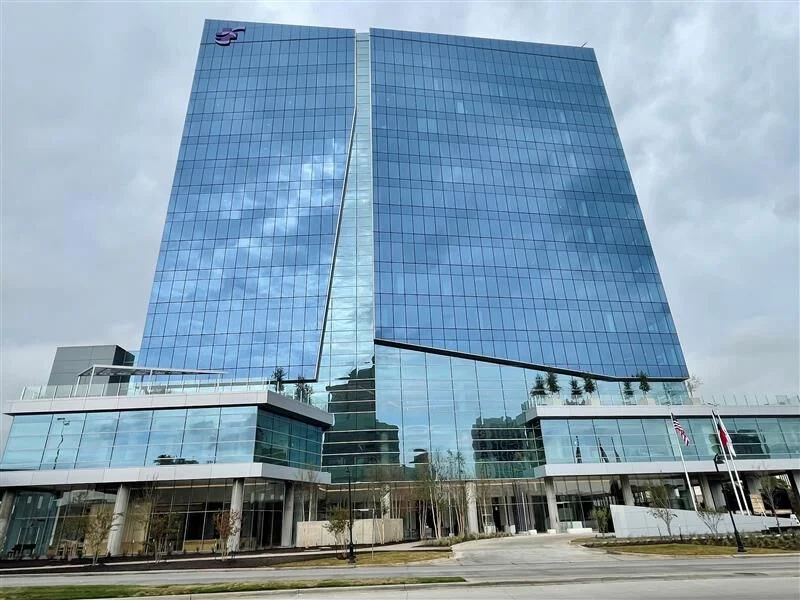Gov. Greg Abbott signs voting bill into law in Tyler
Published 12:02 pm Tuesday, September 7, 2021

- After signing Senate Bill 1, Gov. Gregg Abbott and St. Senate Bryan Hughes meet with press conference attendees on Tuesday in the Plaza Tower in Downtown Tyler.
Gov. Greg Abbott officially signed an elections bill into law Tuesday in Tyler that will add new rules for mail-in balloting, increase early voting hours and according to him, make it harder for people to commit fraud.
Abbott, joined by Sen. Bryan Hughes, R-Mineola, who authored Senate Bill 1, said the law improves eligible voters’ access to cast a ballot in Texas.
“It does make it easier than ever before for anybody to go cast a ballot,” Abbott said. “It also, however, makes sure that it is harder for people to cheat at the ballot box.”
Also in attendance at the event in downtown Tyler were Lt. Gov. Dan Patrick and state Rep. Andrew Murr, who authored the bill’s counterpart in the House.
According to the governor’s office, SB 1 establishes uniform statewide voting hours, continues and expands voting access for registered voters needing assistance, prohibits drive-thru voting and allows poll watchers to see more parts of the election process.
The new law also makes a window for early voting of 6 a.m. to 10 p.m., which according to the Texas Tribune outlaws the 24 hours of uninterrupted voting offered by Harris County during the 2020 elections.
SB 1 also requires 12 hours of balloting for more counties each weekday of the second week of early voting in state elections.
The distribution of unsolicited applications for mail-in ballots is not allowed, and voters can correct a defect within their mail-in ballot. The law states voters must provide their driver’s license number or the last four digits of their Social Security number on applications and return envelopes for mail-in ballots.
“One thing that all Texans can agree on is that we must have trust and confidence in our elections. The bill that I’m about to sign helps to achieve that goal,” Abbott said. “One thing that it does is it ensures every eligible voter will have the opportunity to vote. It provides even more hours for people to go to cast their votes.”
He emphasized the law makes it difficult for fraudulent votes to be cast, including concerns surrounding mail-in ballots.
“This is an area where Republicans, as well as Democrats, agree has been the easiest way to cheat in the election process. The law that I’m about to sign fixes that problem,” Abbott said.
SB 1 also makes ballot harvesting — when political operatives collect absentee ballots from voters’ homes and drop them off at polling places or election offices — a third-degree felony.
Abbott called ballot harvesting a serious problem in Texas, and Hughes cited the case of Gregg County Commissioner Shannon Brown and three others, who are accused of organized election fraud in the March 2018 primary in Gregg County.
“In Longview … we have a county commissioner under indictment for mail ballot fraud,” Hughes said. “Anybody who tells you there’s no voter fraud in Texas is telling you a very big lie. It’s going on today. As you know, this bill deals with that.”
Abbott said he was delighted to be in the Hughes’ Senate district in Tyler, noting that the senator represents one of his hometowns — Longview.
“It’s great to be back in my hometown of East Texas. Thank you for your leadership,” Abbott said. “We’re in Tyler because the lead advocate from the very beginning has been Bryan Hughes. If you watch Sen. Bryan Hughes talk on television, talk to the media, talk to the Senate, talk to the House, talk to me about it, he carried a heavy load in getting across the finish line. In his district is the right place to sign SB 1 into law in Texas.”
The Texas Tribune reported that two federal lawsuits already have been filed against SB 1, arguing that the law creates new hurdles and restrictions to suppress voters.
Abbott said during the news conference that he would be “astonished” if a law like SB 1 was not challenged in court, but he believes the legislation will stand up.
“We’ve seen it happened whenever laws like this are passed. The first thing Democrats do is run to the courthouse and try to challenge it. I feel extremely confident that when this law makes it through the litigation phase, it will be upheld in a court of law,” he said. “It does make it easier for people to go vote. No one who is eligible to vote will be denied the opportunity to vote.”
Texas’ election legislation will provide a standard for other states to pass similar laws, Abbott said.
“Texas is obviously a national leader as it concerns the laws that we pass, and other states follow,” he said. “Texas does make it so easy to vote that this does make it a good paradigm for other states to follow.”
Hughes said the law he wrote is about real people who are trying to vote. He read testimony from a trial in Hidalgo County in which a first-time voter said an election worker, who she believed was giving her instructions, ultimately voted for her.
“This is about people who are trying to cast their ballots, but cheaters, ballot harvesters, bad actors, paid political criminals are trying to get in between the voter and their ballot. We have a great system in Texas,” he said. “This bill will make it better for Texan voters to cast their vote.”
Hughes said under SB 1, when a person is in line at the polls and the polls close, that person will be guaranteed the chance to vote. Employers also now will be required to let their workers off to go early vote in addition to on Election Day.
Patrick said Hughes had a great legislative session, including authoring Senate Bill 8, which bans abortion after six weeks into a pregnancy.
He called the statement from “left-wing media (and) Democrats” that it’s tough to vote in Texas a lie.
“When we passed photo voter ID in the Senate in 2011, they said the same thing about that bill that ‘it’s going to suppress votes.’ Since that bill passed, Texas has increased voter turnout more than any other state in the country,” Patrick said.
He said voter turnout has risen greatly over the past elections and attributed the increase to people having trust in the election process.
“Texas turns out voters because they have confidence that elections are always going to be fair, and we want to see more people vote,” Patrick said. “We want to see people vote fairly, and we don’t want the cheaters to undermine the elections.”
During the news conference, near Tyler’s downtown square, about 60 protesters gathered to object to the voting legislation and the state’s new anti-abortion measure.







